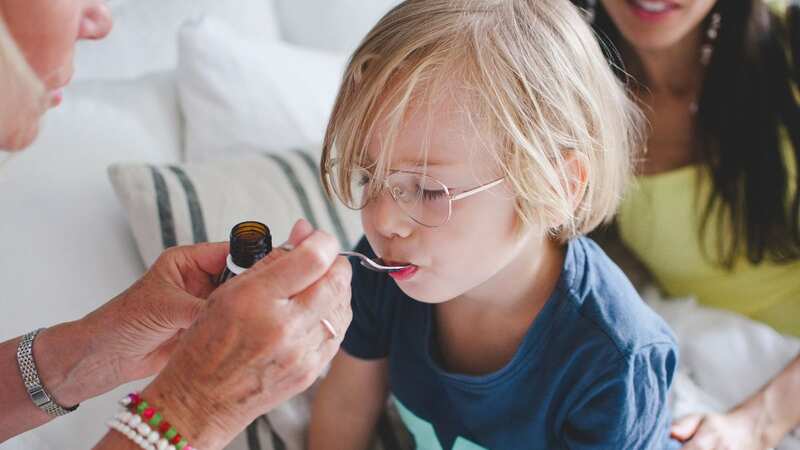New interactive map shows where cases of '100-day cough' are in your area

Brits can see how badly their area is affected after a spike in whooping cough cases this year with our new interactive map.
Health experts have shared the warning signs of the “100-day cough” - as more than 2,500 suspected infections have been diagnosed by GPs so far in 2024.
The latest figures show there were 365 suspected cases of whooping cough in the last week ending February 25. Although that is down from the 424 suspected cases the previous week, there have now been a total of 2,693 suspected infections so far this year.
That is 25 times higher than the 108 suspected cases identified over the same period last year, and 35 times higher than the 76 cases at this point in 2022. These are cases that GPs believe to be whooping cough, but have not yet been confirmed by a lab test.
GPs are required to send notifications of possible cases of certain infectious diseases including whooping cough to the UK Health Security Agency so they can provide an early warning of possible outbreaks. Wales continues to have more suspected cases than any region of England, with 560, including 76 in the latest week.
 Changing how pharmacies work could free up 42 million GP appointments a year
Changing how pharmacies work could free up 42 million GP appointments a year
But the spread of whooping cough is gaining pace in parts of England, particularly the South East, where there have now been 451 cases, London (377) and the North West (345).
Of local authority areas, four areas had 10 suspected cases each, the highest number in the last week. They were Swansea, Flintshire, Cheshire West and Chester, and Powys. Swansea continues to have the highest number of infections overall with 82, followed by Cardiff (71) and then Hart in Hampshire - which is now third with 66 cases despite not having any infections in the first three weeks of the year.
Whooping cough - sometimes known as the “100-day cough” - is a bacterial infection of the lungs and breathing tubes. It spreads very easily and can sometimes cause serious problems.
Navin Khosla, a pharmacist at online pharmacy NowPatient, said: “For many years, whooping cough has been known as an infection which mainly affects children who haven’t been vaccinated and although cases are still mostly amongst children, whooping cough can infect adults who have been vaccinated, but the protection from the vaccine has started to fade.
“In most cases, whooping cough will present symptoms very similar to a common cold, such as a runny nose and a sore throat, but these symptoms will intensify over the course of a week. Around seven days after being infected with whooping cough, longer coughing bouts will take hold and are most common during the night. As well as this, the intensity of the coughing bouts can cause breathing difficulties and produce thick mucus.
“The best protection against whooping cough is to have children vaccinated and for adults to accept booster vaccines where applicable. However, if you do become infected and experience symptoms including vomiting, and difficulty breathing and you notice your face turning red or blue, seek medical attention. In most cases, a course of antibiotics will be prescribed by your GP, but the symptoms could last several weeks or months.”
The NHS advises asking for an urgent GP appointment or seeking help from NHS 11 if your baby is under six months old and has symptoms if you or your child have a bad cough that is getting worse, or if you’re pregnant - or if you or your child have a weakened immune system - and have been in contact with someone with Whooping Cough.
The recent increase in suspected cases comes as NHS figures show that vaccine uptake is falling, with around one in 10 babies not receiving the six-in-one jab - which protects against whooping cough and also fights polio, tetanus, diphtheria, hepatitis B, and haemophilus influenzae type B - by their first birthday. Meanwhile, four in 10 expectant mothers do not take the maternal whooping cough vaccine, which protects their unborn baby.
Read more similar news:
Comments:
comments powered by Disqus

































